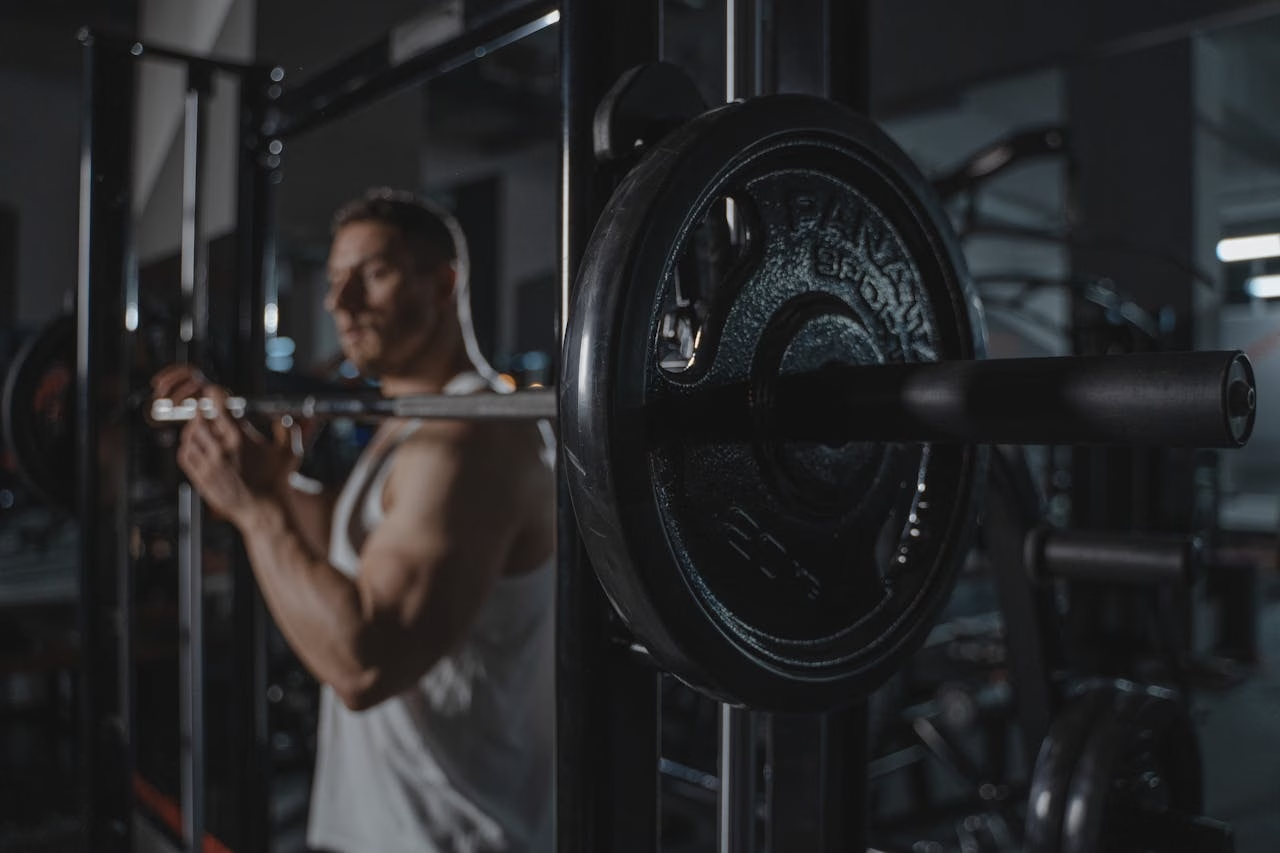Looking to run a ten-kay at your best speed? Runners need to lift weights.
Click here to see Your Six Week Training Guide
Why runners should lift weights
Don’t worry, you won’t get too bulky — just fitter, faster and less prone to injury, explains Charles Poliquin.
If you’re more of a pavement pounder than a gym rat, you probably skip over my monthly musings and head straight for the cardio section of MF. But this month I’m talking specifically to runners, cyclists, rowers and anyone else who prefers long cardio sessions. Because I know how you can get leaner, stronger and faster at your chosen discipline. And yes, the answer lies in strength training.
So even if you hate the thought of being stuck in a gym lifting metal, bear with me. You may be surprised at the benefits it offers.
Run to get faster
Whatever your distance, strength training will make you faster because of increased leg strength and greater efficiency in using energy and oxygen, or, in runner’s terms, an improved VO2 max. Research on endurance athletes who introduced strength workouts into their training found a five percent increase in running economy and an astonishing 21.3 percent increase in the time they could run at their maximum aerobic speed.
Take-away tip: Strength training will make you faster. Heavy weights and low reps for the muscles of the lower body will produce best results.
Run to lose fat
Most of the energy burned in the body stems from your resting metabolic rate, which is affected by your proportion of lean muscle to body fat. Body fat slows that rate and produces substances that make you fatter, including aromatase (which turns testosterone into oestrogen) and adipokines (which slows metabolism). Lean muscle tissue improves metabolism instead, so to be a better runner — and have a better-looking body — you want more muscle and less fat.
Take-away tip: Strength training decreases your body-fat percentage, making you lighter and faster.
Prevent Injury
Strength training will rid you of nagging injuries and help you correct structural imbalances that increase injury risk and lead to inefficient movement patterns. For instance, the vastus medialis oblique (VMO) is a common weak link in the quad, and weak calves are thought to contribute to shin pain.
Weight training can also decrease chronic pain and minimise aches and joint discomfort from continually pounding the pavement. Heavy strength training triggers protein synthesis in the connective tissues and also increases bone strength.
Take-away tip: Strength training improves structural balance and can help prevent injury and chronic pain.
Higher Sex Drive
There is evidence that reproductive health can suffer as a result of endurance training: a recent study in the European Journal Of Applied Physiology found that intense endurance exercise causes low testosterone and diminished sex hormone levels in men. Strength training improves levels of these hormones and counters the oxidative stress from cortisol and related catabolic hormones that cause inflammation and damage to the reproductive organs.
Take-away tip: Strength training will improve libido, reproductive health and fertility.
Better Health
Scientists have become concerned about the negative health effects of endurance training because of the daily physical stress it causes — it’s been shown to produce a high level of oxidative stress, which can lead to chronic inflammation. Strength training helps you avoid the debilitating impact of this stress.
A moderate-to-heavy strength training program has been shown to increase antioxidant levels and counter oxidative stress by increasing your body’s testosterone and reducing cortisol, making you healthier, stronger and faster.
Takeaway tip: Strength training protects runners from the repeated damage of oxidative stress by raising antioxidant levels.
Moves for more speed
What exercises should a runner do?
Perform heavy lower-body lifts — such as squats, lunges and deadlifts — for best results. When runners try weight training, they often attempt to increase muscular endurance instead of strength. This won’t make you faster. Once you’ve got the basics — learning correct form for the main lifts and building hip, knee and ankle flexibility — you will benefit from lifting heavy, i.e. above 80 percent of your one-rep max. The only relevant studies that haven’t produced gains in running speed are those that used too light a load or were too short (less than eight weeks). Be sure to vary the tempo, which is the speed at which you lift and lower the weight.




